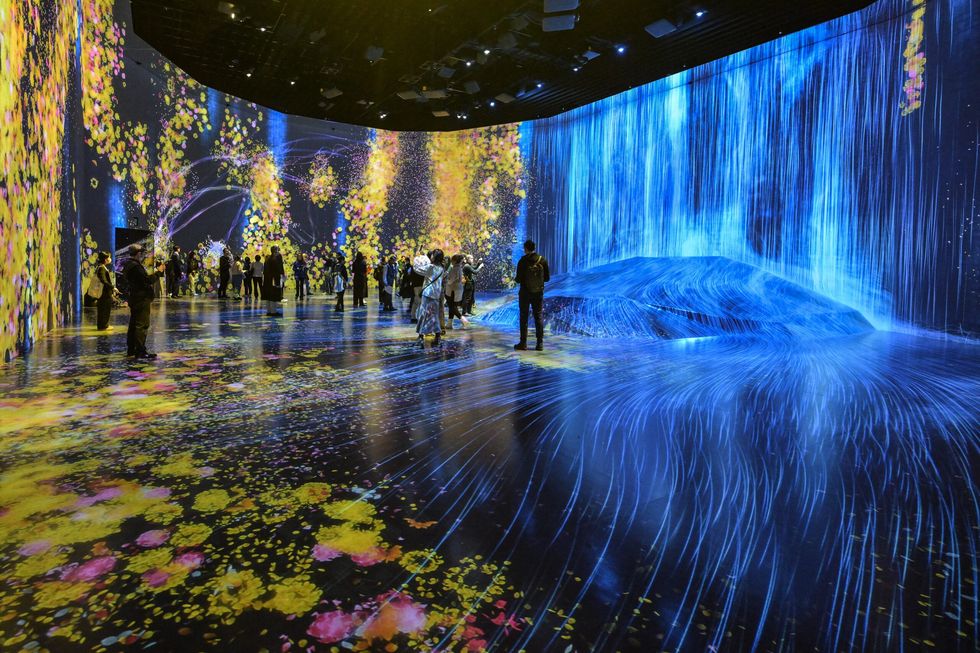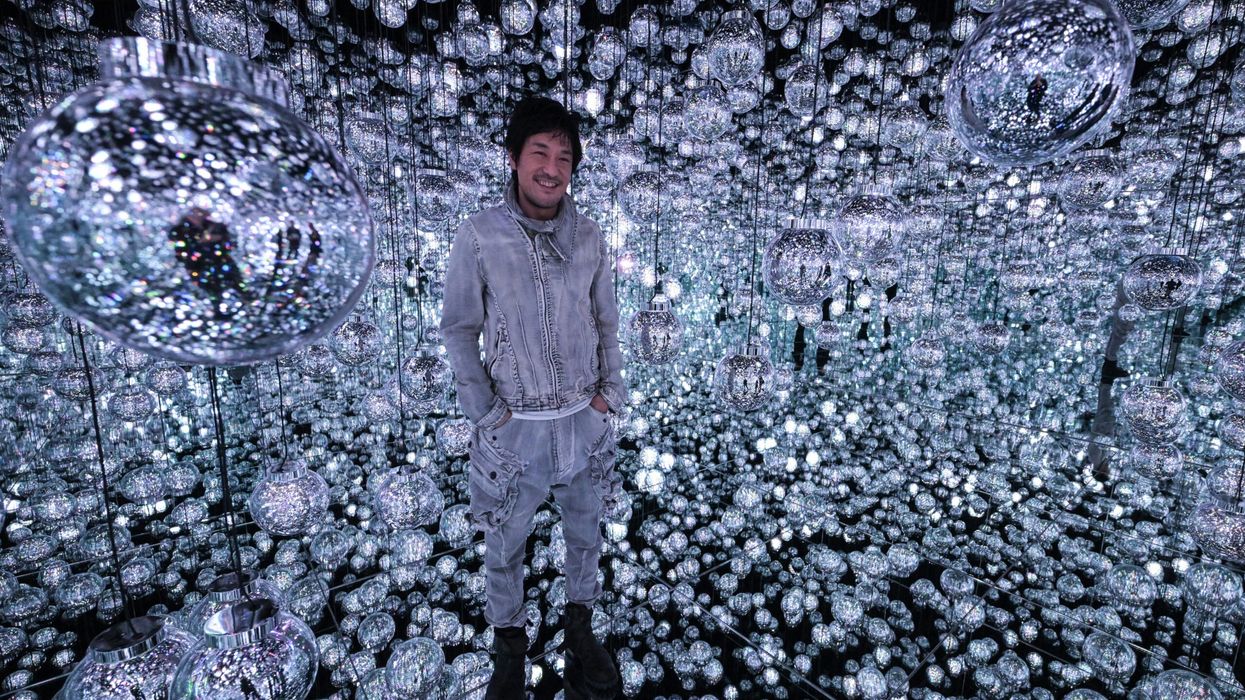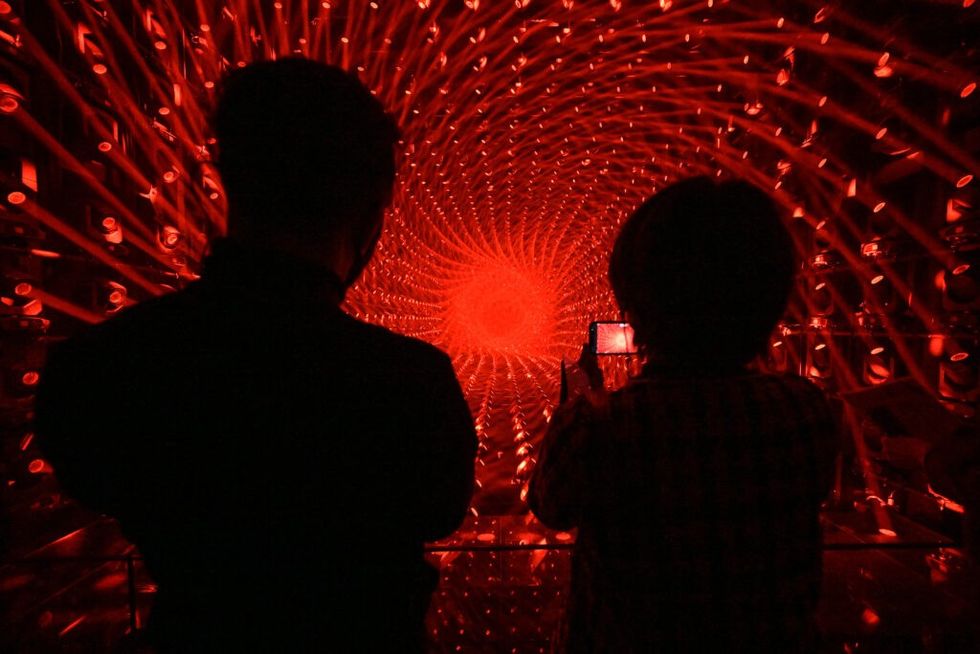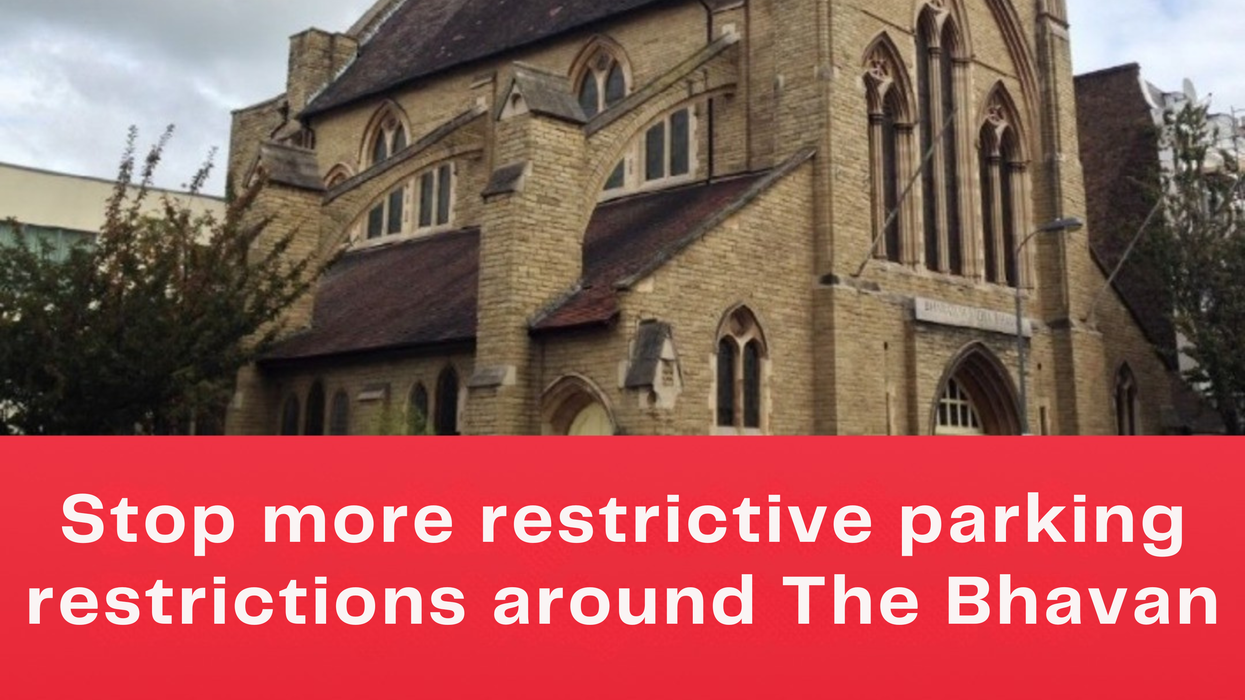IT’S immersive, interactive and, of course, Instagrammable – and now the digital art of Japanese collective teamLab, a major tourist draw, has a new home in the country’s tallest skyscraper in Tokyo.
A shifting vortex of spotlights and a mirror room filled with ethereal “wobbling” orbs are among the brand-new artworks at the “teamLab Borderless” permanent exhibition, which opened earlier this month.
They join dozens of other mesmerising displays, from waterfalls of light to birds leaving colourful trails as they dart by, in a labyrinthine display at the 330-metre Azabudai Hills building in central Tokyo.

“Our goal is to touch people and prompt them to reflect on life and the world in a more positive way,” Toshiyuki Inoko, director of the globally renowned teamLab collective, said.
“Our work is the continuation of our past endeavours, but offers a whole new experience at the same time.”
Visitors to the attraction at Azabudai Hills, which has towered over central Tokyo since its completion last year, are free to wander through the complex of artworks that combine projection and sound.
Some displays move from room to room, and others react to visitors’ movements, with petals scattering as they approach and fluid lights rippling at their feet.
The exhibition has more than 50 artworks featuring a mix of natural and otherworldly motifs, from slowblooming flowers to a vast room of cables through which digital light appears to rain down.
Many exhibits were shown at the previous incarnation of “teamLab Borderless” in Tokyo Bay, which was open from 2018 to 2022.
Visited by stars including Will Smith and Kim Kardashian, it holds the Guinness World Record for the most visited museum dedicated to a single art group, with nearly 2.2 admissions in 2019.
Visitors can explore the complex of artworks that combine projection and soundAs well as visual and auditory pleasures, the installations at the new “teamLab Borderless” also appeal to the senses of smell and taste, with green tea and ice cream served under special table projections.
Humans “perceive the world with their bodies, but these days our perception of the world is often through the internet, or television”, Inoko said.
“So, we wanted to create an experience” that appealed to all senses, Inoko added.
The exhibition is well poised to take advantage of a recent boom in tourism to Japan, with visitor numbers hitting a record monthly high in December.
TeamLab was founded in 2011 and also runs another museum in Tokyo called “teamLab Planets” that has shown popular artworks worldwide. (AFP)














